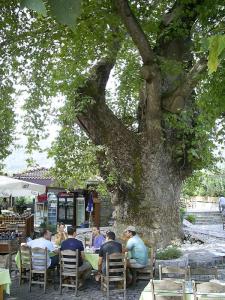In a 2012 post in this blog, I criticized a 2009 essay called “50 Years of Stupid Grammar Advice.” The putative advice was that of Strunk and White. However, what these two had written was not the elements of grammar, but The Elements of Style. They gave style advice by precept and example. The advice is good, if well understood. The critic should recognize that, as I wrote, “Rules of style are supposed to induce thinking, not obedience.”
-
-
Meta
-
Archives
-
Categories
- Art (168)
- Music (3)
- Poetry (97)
- Homer (72)
- Sylvia Plath (4)
- T. S. Eliot (11)
- Prose (59)
- Visual Art (26)
- Film (5)
- Education (52)
- Facebook (14)
- History (66)
- Archeology (6)
- Tourism (31)
- Language (33)
- Fowler (5)
- Grammar (12)
- Strunk and White (9)
- Turkish (7)
- Logic (12)
- Mathematics (69)
- Exposition (19)
- Mathematical Topics (10)
- Calculus (4)
- Conic Sections (6)
- Mathematicians (27)
- Archimedes (8)
- Euclid (19)
- G. H. Hardy (7)
- Philosophy of Mathematics (16)
- Nature (27)
- Philosophy (268)
- “God is a circle …” (5)
- Categorical Thinking (6)
- Causation (12)
- Contradiction (8)
- Criteriological Science (8)
- dialectic (28)
- Freedom (22)
- Ontological Proof (6)
- Pacifism (9)
- Persons (221)
- Aristotle (49)
- Collingwood (155)
- absolute presuppositions (17)
- “ceases to be a mind” (5)
- New Leviathan (70)
- overlap of classes (11)
- Principles of Art (45)
- question and answer (5)
- Descartes (18)
- Leo Strauss (9)
- Midgley (13)
- Pirsig (30)
- Plato (97)
- Philosophy of History (26)
- Sex and Gender (12)
- Stoicism (2)
- Psychology (19)
- Science (29)
- Galileo (7)
- Turkey (95)
- coup (3)
- Istanbul (57)
- Bosphorus (5)
- Gezi (8)
- The Islands (3)
- Tophane (3)
- Nesin Mathematics Village (26)
- Uncategorized (8)
- West Virginia (16)
- Art (168)
-
Recent Posts






